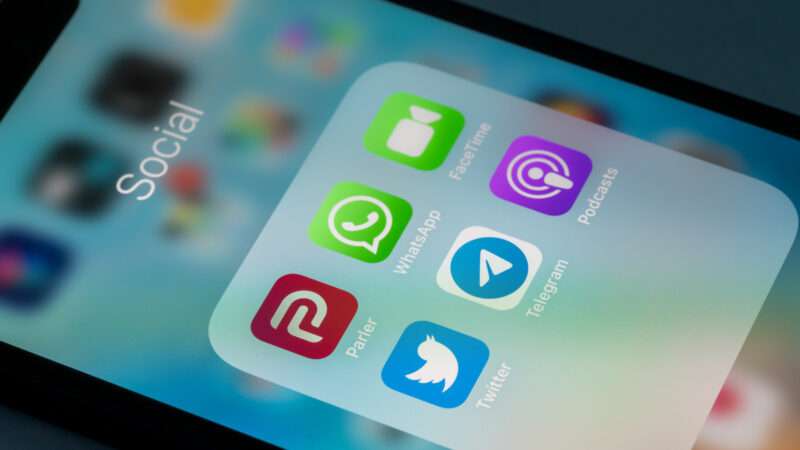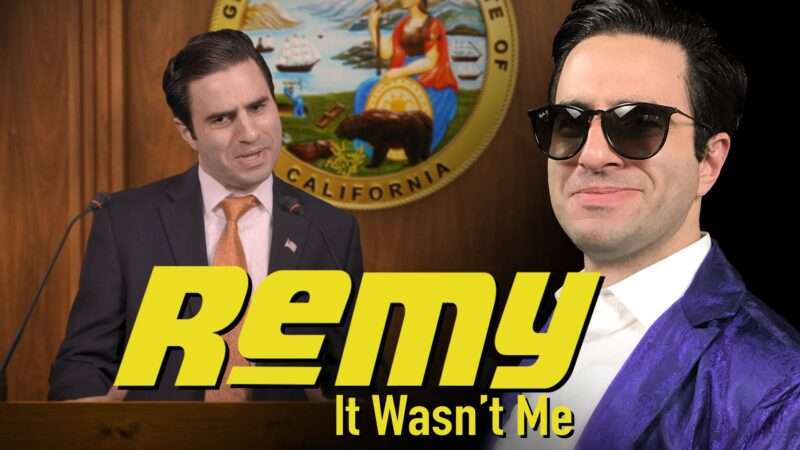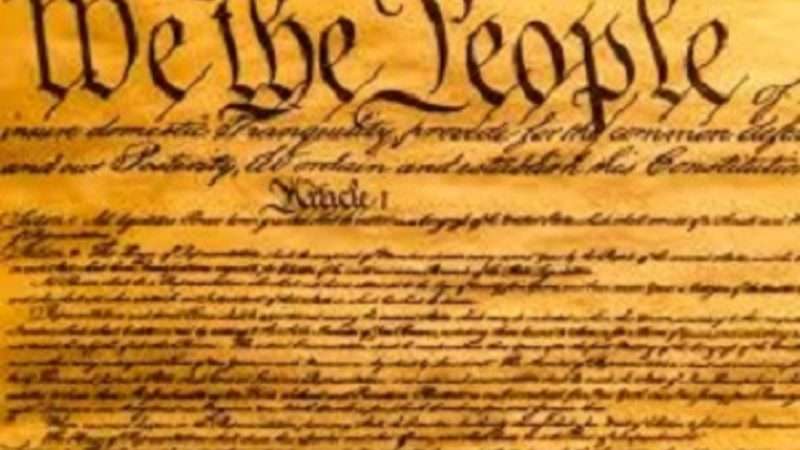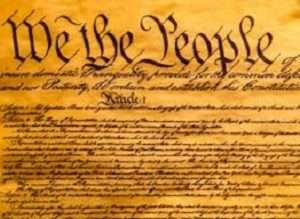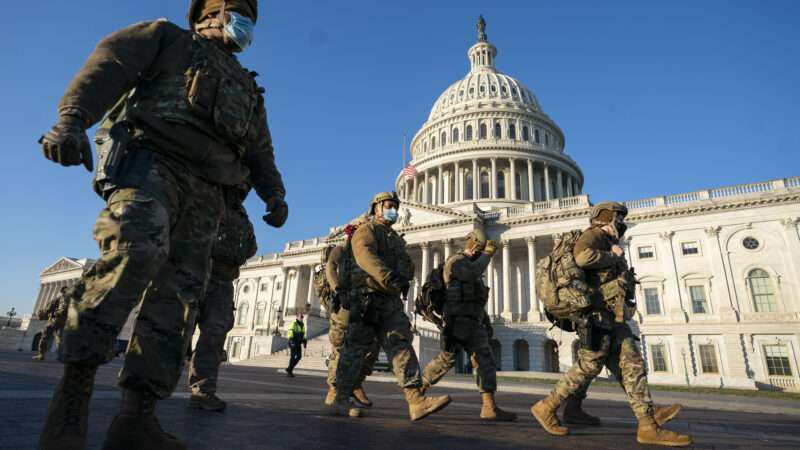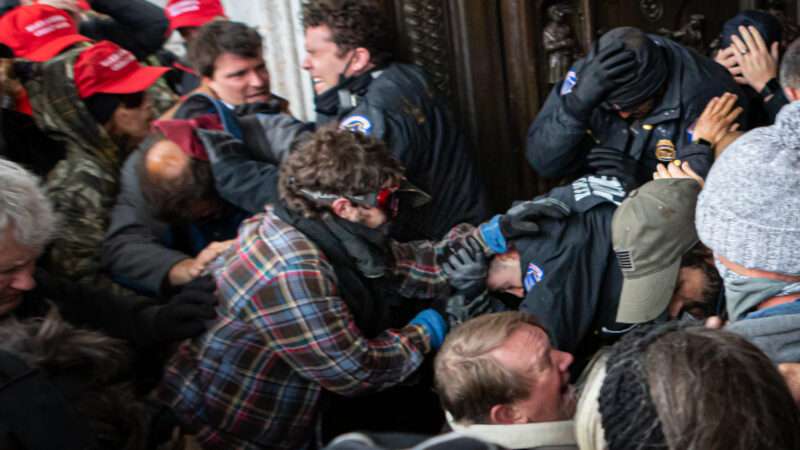
The riots that gripped the Capitol on January 6 were overwhelmingly the fault of President Donald Trump’s supporters, who stormed the halls of Congress, vandalized lawmakers’ offices, and assaulted police officers in some hopes of preventing the certification of Joe Biden as the 46th president of the United States.
That conservative protesters—and not leftist provocateurs—were responsible was plainly obvious as the mob violence unfolded. A week later, following dozens of arrests, it is no less true: Trump supporters did this, and any effort to paint antifa as the real culprit is pathologically dishonest.
That has not stopped Trump defenders from trying. Former New York mayor and current Trump attorney Rudy Giuliani hinted at “antifa involvement” in a tweet. Rep. Paul Gosar (R–Ariz.) said the riots “had all the hallmarks of antifa provocation.” Trump himself has privately blamed antifa for what transpired, according to reports.
The day after the riot, I wrote a piece for Reason explaining why the assertion that antifa had any significant involvement in the riot was false. I noted that many of the rioters were captured in photographs, and are clearly sincere MAGA people:
Several of them, including “groyper” leaders Nick Fuentes and Baked Alaska, are well-known to the media by now. The woman who was sadly killed by police under circumstances that require further investigation was genuinely pro-Trump. The guy who sat in House Speaker Nancy Pelosi’s chair and stole her mail is definitely not antifa, nor is the half-naked fur-and-horns guy. This latter individual is named Jake Angeli, and he is a conspiracy theorist—the self-stylized “Q Shaman”—who has appeared at multiple Trump rallies.
Law enforcement has subsequently arrested scores of rioters, uncovering no vast antifa conspiracy in the process. With few exceptions, those arrested are exactly who they seem to be.
It is true that a single individual with left-wing ties—the activist John Sullivan—has now been arrested for participating in the storming of the Capitol. This development prompted several commentators on the populist right to claim victory and assert that I was wrong. This is truly absurd; the existence of one person vaguely connected to antifa does not establish that antifa was ultimately culpable for what transpired. Indeed, as I wrote in my article:
Thousands of people were at the Capitol on Wednesday, and many of them caused trouble. It’s possible that someone, somewhere, was trying to falsely pin a crime on a Trump supporter. But the many acts of violence and intimidation that transpired in the halls of Congress yesterday were overwhelmingly and provably committed by the president’s most fervent supporters.
That take has not merely held up—it has been proven correct. The FBI does not believe antifa was involved. Overwhelmingly, those arrested have been associated with the far-right, not some antifa plot.
That’s also the conclusion of reporters working for conservative news website The Daily Caller and The Daily Caller News Foundation, which were founded by Fox News commentator Tucker Carlson.
“The Daily Caller and the Daily Caller News Foundation had a combined six reporters at the Capitol building during the riot, all of whom said the crowd and the participants did not seem to include a significant antifa presence,” wrote Chuck Ross and Andrew Kerr. “Most of those reporters spent the summer covering Black Lives Matter and antifa protests and riots.”
Antifa is a real threat, and I’ve spent years documenting its illiberal activities. Most recently, antifa protested a book store for daring to sell a book by the antifa-critical writer Andy Ngo. (The predictable result of their efforts was that Ngo’s book surged to the top of the Amazon bestsellers list.)
But that doesn’t mean it’s fair to pin every example of mob violence on antifa. We know who caused the Capitol riots: supporters of the president who heard his call to protest the outcome of the 2020 election and took action.
from Latest – Reason.com https://ift.tt/3st1KnV
via IFTTT
